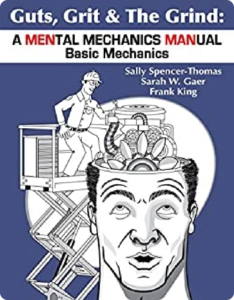Embracing Mental “Abledness”: The Evolutionary Advantages of Mental Illness
In recent years, society’s understanding of mental health has evolved significantly. Traditionally, mental illnesses were seen as a deviation from the norm, a condition to be hidden or ashamed of. However, what if the common narrative of mental illness as a genetic mutation is not entirely accurate? In this blog post, inspired by Frank King’s insightful talk on “The Mental Health Comedian” podcast, we delve into the hypothesis that mental illnesses may actually offer evolutionary advantages.
The Dichotomy of Mental Illness and Mental “Abledness”
Frank King raises an intriguing question: What if mental illness is a desirable disadvantage, an adaptation rather than a hindrance? He suggests that instead of viewing mental disorders solely as problems, we should consider how they might actually enhance certain abilities. This perspective encourages individuals to treat and mitigate the symptoms of mental illness while embracing and harnessing their mental “abledness.”
For example, King, who lives with major depressive disorder and chronic suicidality, attributes his imaginative creativity, quick wit, and sense of humor to his mental health condition. These traits have been instrumental in his successful career as a comedian and speaker. By reframing mental illness as an integral part of one’s identity rather than a flaw, individuals might find empowerment and strength within their challenges.
Comedy and Mental Health: A Symbiotic Relationship
The connection between comedy and mental illness is more pronounced than commonly recognized. King points out that a disproportionate number of comedians experience some form of mental illness. This correlation could be because the unique perspectives and heightened emotional intelligence that often accompany mental health issues can enrich comedic material, offering deeper insight and reliability.
King’s teaching experience in Vancouver, British Columbia, further illustrates this point. He conducted a stand-up comedy class specifically for individuals with mental illnesses, emphasizing the therapeutic value of comedy. Laughter becomes a bridge, reducing the stigma surrounding mental health and allowing participants to share their experiences in a creative, cathartic way.
The Evolutionary Perspective: Mental Illness as Survival Skills
Exploring the evolutionary angle, King introduces the idea that mental illnesses are remnants of ancient survival mechanisms. He asserts that many mental disorders had functional roles in prehistoric times. For instance, individuals with bipolar disorder might have thrived during hunting and gathering seasons due to their hypomanic phases, which are characterized by increased energy, creativity, and risk-taking.
Similarly, conditions such as OCD and ADHD may have provided evolutionary benefits. OCD traits could have been advantageous for meticulous planning and organization, essential for storing food and resources effectively. ADHD, often associated with distraction, could have heightened alertness to potential threats in primitive environments, ensuring survival.
Reframing Education: Celebrating Mental “Abledness”
One of King’s compelling arguments is the potential to reshape educational strategies to nurture mental “abledness.” By acknowledging the unique strengths associated with various conditions, educators can design customized learning plans that align with students’ inherent abilities.
For example, children with OCD could excel in fields that demand attention to detail, such as science and mathematics. Meanwhile, those with dyslexia might thrive in the arts, where peripheral vision and the ability to perceive the bigger picture can be advantageous. Similarly, students with ADHD could benefit from interactive, dynamic learning environments that capitalize on their energy and creativity.
Conclusion: Reimagining Mental Health
Frank King’s reflections challenge us to perceive mental illnesses not just as disorders needing treatment, but as unique lenses through which individuals can interpret and interact with the world. By embracing this reimagined perspective, society could reduce stigma, empower individuals, and leverage the extraordinary capabilities that often accompany mental health challenges.
Through understanding, acceptance, and tailored support systems, we can recognize the evolutionary advantages of mental illness, celebrating the diverse tapestry of human experience it enriches.

